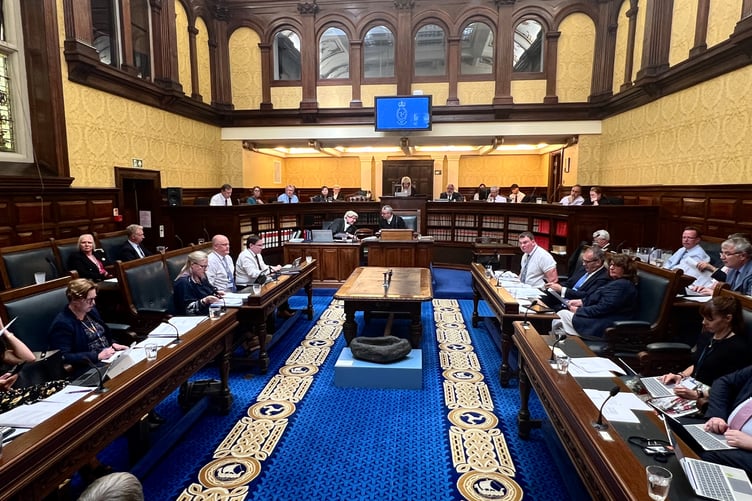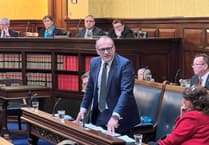The Minimum Wage Committee is opposing a planned 9.9% increase in the rate to £13.46 an hour - saying it’s concerned at the impact on businesses and inflation.
Despite its opposition, Enterprise Minister Tim Johnston is pressing ahead with the proposed rise with a motion tabled for next week’s Tynwald sitting.
In a letter to Minister Johnston, dated September 2, Minimum Wage Committee chair Anne Marie Weadock said the committee has agreed not to recommend the increase to £13.46.
Her letter, to be laid before the October Tynwald, warns about the impact on employment, inflation and the costs and competitiveness of businesses.
Ms Weadock said: ‘The committee felt a rate of £13.46 would be unsustainable for a cross section of low paying employers.
‘Members also wondered whether [it] may be detrimental to some social security claimants.
‘The committee felt that overall, a rate of £13.46 would be more likely to have a negative effect upon inflation than a positive effect.’
She said the committee remains concerned that some disabled workers may find they are priced out of the labour market.
The government has abandoned plans to align the minimum and Living Wages.
Instead, Tynwald in July approved plans to set the rate of the minimum wage based on 66% of median earnings. This would take the single hourly rate from the current £12.25 to £13.46.
Ms Weadock referred to Chamber of Commerce concerns that median earnings in the public sector are higher and said the committee could support an increase to £12.42 based on private sector median earnings alone.
She concluded: ‘Whilst the committee feels unable to recommend the proposed rate, the committee does applaud the change of approach taken in removing the link to the Living Wage, which is becoming increasingly unrealistic for small businesses and low paying employers to achieve.’
DfE and Treasury have to consult with the Minimum Wage Committee before making any changes to the rate but they have no statutory obligation to follow the committee’s recommendations.




.png?width=209&height=140&crop=209:145,smart&quality=75)